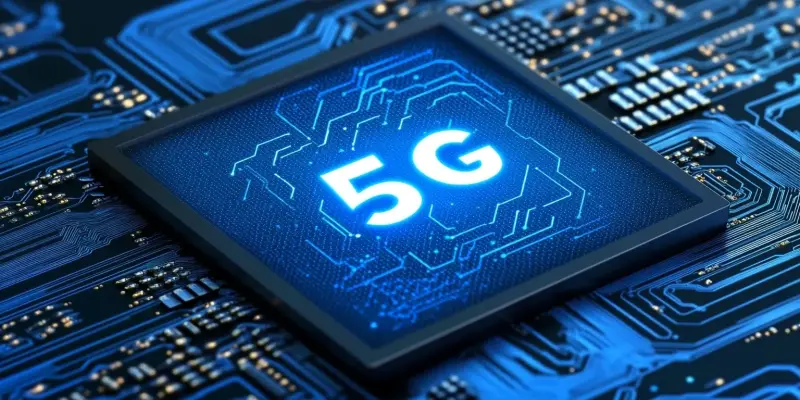The rapid adoption of private 5G networks across industries such as energy, military, logistics, healthcare, and manufacturing has propelled technological advancement, yet it also introduces a plethora of new security challenges. Businesses increasingly embrace these high-speed, low-latency networks, also opening their operations to new vulnerabilities that require robust security measures. The integration of AI-powered security solutions has been a significant step forward, yet it has not been without its limitations. Despite the high expectations, AI does not entirely eliminate risks, especially in the absence of specialized expertise in communications technology (CT).
Research conducted by Trend Micro and CTOne brings to light that nearly all organizations are either implementing or considering private 5G networks. This trend is strongly coupled with the deployment of AI-driven security mechanisms. The critical capabilities identified in these tools include predictive threat intelligence, continuous adaptive authentication, zero-trust enforcement, and self-healing AI-automated networks. Nonetheless, the practical implementation of AI security is fraught with challenges, including high costs, significant false positives and negatives, and a worrisome scarcity of internal expertise necessary to effectively manage these tools.
The Role of Dedicated CT Security Teams
One of the most pressing issues uncovered in the widespread deployment of private 5G networks is the notable lack of specialized CT security teams within many organizations. Only a meager 20% of organizations possess dedicated personnel for managing CT security, leading to a situation where Chief Technology Officers (CTOs) and Chief Information Officers (CIOs) are forced to absorb these responsibilities. This often results in gaps in protection, as these roles may not have the specific skill set or focus to address the nuanced demands of securing 5G networks. The absence of dedicated teams causes an expanded enterprise attack surface, heightening the risk of security breaches.
Furthermore, the study reveals that security budgets are not adequately aligned with the significant role of private 5G networks. Only 18% of security expenditures are earmarked for these networks, highlighting a critical oversight. This underinvestment is alarming, given the increased complexity and potential risk that accompany private 5G infrastructures. Without appropriate funding, it becomes considerably challenging to implement and maintain robust security measures that address the specific vulnerabilities inherent to these advanced networks. Organizations must reassess their budget allocations to ensure effective security protocols are in place.
Compliance Risks and the Necessity for Proactive Security Measures
In addition to the challenges posed by the lack of dedicated CT security teams and insufficient budget allocations, compliance risks further complicate the deployment of AI in 5G network security. Only about half of the respondents in the research ensure compliance with the General Data Protection Regulation (GDPR), adequately encrypt data, enforce stringent AI access controls, or employ data anonymization techniques. These lapses are not merely regulatory oversights; they represent substantial vulnerabilities that can be exploited by malicious actors. The consequences of non-compliance can be severe, encompassing legal penalties and significant damage to an organization’s reputation.
The consensus remains clear: the potential of AI to enhance security is undeniable, yet it must be wielded intelligently and with a comprehensive understanding of the associated risks. Organizations must take a proactive approach to managing their attack surfaces, meticulously ensuring compliance with relevant regulations. By combining AI-powered tools with deep technological and cyber risk knowledge, companies can create a more secure environment for their private 5G networks. This necessitates substantial investment in both technology and personnel specialized in CT security.
Bridging the Gap: Investments and Expertise
The swift adoption of private 5G networks in sectors like energy, military, logistics, healthcare, and manufacturing has driven technological progress. Yet, it also introduces numerous new security challenges. As businesses increasingly embrace these high-speed, low-latency networks, they expose their operations to new vulnerabilities that demand strong security measures. Incorporating AI-powered security solutions has been a major advancement, but it hasn’t come without limitations. Despite the high hopes, AI alone cannot eliminate risks, especially without specialized expertise in communications technology (CT).
Research by Trend Micro and CTOne shows that nearly all organizations are either integrating or considering private 5G networks. This trend is closely linked with deploying AI-driven security mechanisms. Key features in these tools include predictive threat intelligence, continuous adaptive authentication, zero-trust enforcement, and self-healing AI-automated networks. Nevertheless, implementing AI security practically is challenging due to high costs, significant false positives and negatives, and a shortage of the internal expertise needed to manage these tools effectively.

